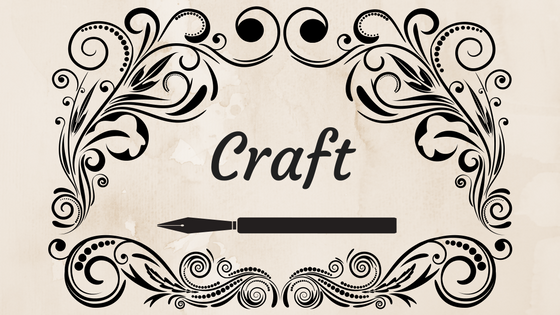by Cary Christopher
How do you write humor so it translates on the page?
This question was posed to me by Greta Boris when she subtly hinted that I should write an article on humor for the O.C. Writer’s blog. By “subtly”, I mean she flat-out asked and then kept dropping reminders every time I saw her up until I gave in this weekend.
Look, I get it. She needs content and this is the season for giving and sharing, but if you think for a moment I’m going to share some ancient knowledge passed down from tribal clown to court jester since before the time of Genghis Khan . . . well, you’re wrong.
Besides, nobody likes to write about this topic. In the famous words of Terry Black and Michael H. Payne (two very funny writers who Greta also tried to rope in), “Nothing is less funny than someone dissecting humor.”
Truer words may have never been spoken. Besides, I traveled up a mountainside in Tibet for that wisdom, so I don’t give it away freely.
In lieu of ancient secrets though, I’ll tell you a quick story and by the end I promise not to leave you empty-handed.
“Bill”
I had an acquaintance once that was as close to a real genius as anyone I’ve ever known. For the purposes of this story I’ll call him Bill, but his real name was Mark. Bill could literally do rocket science calculations in his head. He was also very full of himself and relished being the smartest person in the room.
One day, Bill told me that he’d figured out the secret to making people laugh. He told me he had done a lot of research and come up with a formula for writing jokes that was guaranteed to succeed. I asked how this was possible and he literally rolled his eyes at me and explained (very condescendingly) that it was all about the scientific process. He was so sure of his formula that he had written a five-minute standup set and would be performing at an open mic night in Los Angeles.
Now, I was pretty sure that Bill’s ability to write jokes was the same as my ability to give birth to a Basset Hound, however I was also sure he had stumbled on something that I would personally find hilarious. I immediately cleared my schedule and made sure I was free to watch his groundbreaking discovery manifest itself onstage.
I’m not going to lie. It was epic. I cannot describe to you how miserably he bombed. There were no boos, but the silence was deafening, and broken only by one guy who was laughing almost nonstop from the second joke forward. That guy was me. I laughed to the point where sound would not come out of my vocal cords. You know that feeling? Where there’s just a hiss coming out of your mouth? Yeah, it was that good.
My point is that funny isn’t a science.
Funny happens.
It just does. Funny can’t be forced, no matter how hard you try. It can’t be taught in books. It’s learned through experience. Also, funny is subjective so you’ll never get everyone who reads your work to laugh. It depends on too many variables to be narrowed down to a simple formula. However, funny isn’t hard to find if you are willing to look for it.
Here’s an exercise that I do occasionally, just for fun. Over the years, it’s helped me identify where the “funny” is hiding in a number of stories I’ve written. It’s not foolproof, but it’s worth trying if you’re looking to get better at finding humor in your characters.
- Create a random character. Fully flesh them out so you know their personality, motivations, etc.
- Put them in a mundane situation (ordering at a restaurant, standing in line at the DMV, etc.)
- Place an obstacle in their path that prevents them from getting what they want.
- Every time they think of a new way to circumvent the obstacle, find something else to impede them. Your mission is to not let them get what they want, while not allowing them to give up either. Don’t be afraid to get absurd. Keep cranking up the craziness. Give ‘em hope and snatch it away.
- Pay attention to what your character does and says in the face of all this. His/her reaction to this scenario and the lengths he/she is willing to go is where the vein of gold will likely start.
If you flesh that out for about a thousand words or so, you’re likely to find the seed of something funny in the middle of it all. When you do, water it and watch it grow.
The last time I gave this exercise a shot, I came up with a character who becomes obsessed with getting an authentic Cuban sandwich while living in Ireland. That has now ballooned into a series of stories, all because I kept uncovering more and more pockets of humor hiding in the ancillary characters and settings.
Empathy is King
One final thing I can share that definitely helps when writing humor; your audience will be more open to your humor if they can find something to empathize with in your character. The world can be frustrating and ridiculous. If your readers see a little of themselves in your character, it’s easier to get them to laugh along at the absurdity.
So, there you go! Even though it’s not a foolproof system, the exercise above should help you find your own path to “the funny”. Give it a shot and feel free to let me know how it works for you!
Happy holidays!
***
Cary Christopher was born and raised in Florida and Georgia but has called Southern California home now for almost 20 years. He’s written extensively about music, movies and pop culture online and for various publications around SoCal. Now he primarily writes for his blog (www.carychristopher.com). His new novel The Wash is available on Amazon.
Link to my Amazon Authors Page: https://www.amazon.com/Cary-Christopher/e/B076FD8MJ3




Great article, Cary! Your method for finding the funny can work on many levels, too.
I personally would like to see you give birth to a Bassett Hound…
Lisannne, I thought we were friends.
I love Billy-Mark’s story. I was trying to think of a funny comment to leave. . . Snore. I’m usually the funniest when I have no idea I’m being funny and not trying to be, which makes writing humor difficult as just proved.
I’m starting a project with a new character and more dark humor early next year and I fully plan to do some noodling around with your “find the funny” exercise. I’ll let you know how it goes.
I’d love to hear how it works for you. I’m wrapping up the rewrite on my Spook Bridge novel over the holiday break and the next thing I will be working on is the first story about the Cuban sandwich I mention in the article. I’ve done a rough draft of it already but will be bringing the rewrite to Fictionaires eventually.